Some people are really good at remembering appointments, knowing exactly what to buy at the grocery store, finishing all of their homework, and more, but you know them as highly unorganized people. Their desk is covered in papers that don’t seem to have a place, their schedule is inside their head, and most of their life is unplanned or spur of the moment. Having your life together without basic organization skills is a special talent. You’re born with it or you aren’t. Chances are, you weren’t born with it–I mean, that’s why you’re reading this post, right? You tried to be that person who doesn’t have a single thing written down but is always on time and it failed miserably. Below, I’ll teach you my best tips for getting and staying organized.
Planners
If you have more than one thing to do each day, you’ll need a way to keep all of your appointments, tasks, and engagements straight. To do this, you’ll want a planner. To ensure your planner doesn’t go to waste, spend time picking one that’s right for you. Many people prefer a digital option.
Many people prefer a digital option. If this is you, Cozi (available in app form for iOS or as a website–so even if you have an Android, you can access Cozi via your web browser) or Microsoft Outlook (available on most every Windows computer via download, via web in Office 365, and in app form for just about all smartphones) are the two best digital ways to plan out your life.
Cozi is great for list people as it houses shopping lists (which you can separate into different types of lists, grocery, wholesale, etc.), to-do lists, and an appointment calendar that looks quite list-like.
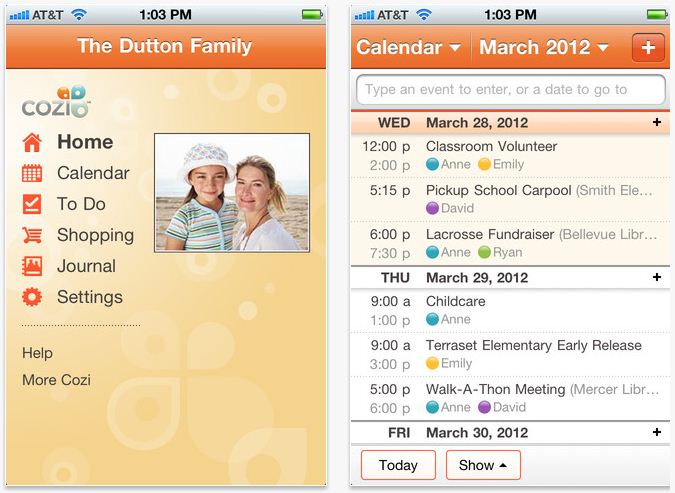
If lists aren’t your thing, Outlook is a really great option, as it puts your email and calendar all in the same place, and you can connect to people in your email inbox to share calendars and coordinate meetings, appointments, and events. Outlook is better for people who prefer appointments to lists, so instead of writing in your to-do list “Job Interview- 1pm” (like you might do in Cozi), you would block off however long your interview is set to last in your calendar and even label the appointment as Busy or Out of Office aka Do Not Disturb. Both Cozi and Outlook have countless features that are literally there to make your life easier.
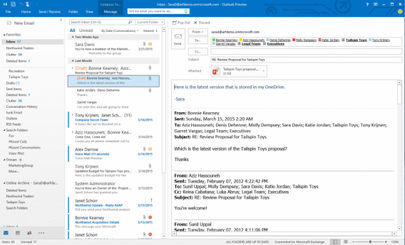
Others, like myself (though I do use both digital options listed above, mainly for work and grocery shopping), prefer a paper option, and there are several types of planner books that people generally love.
Hour Format
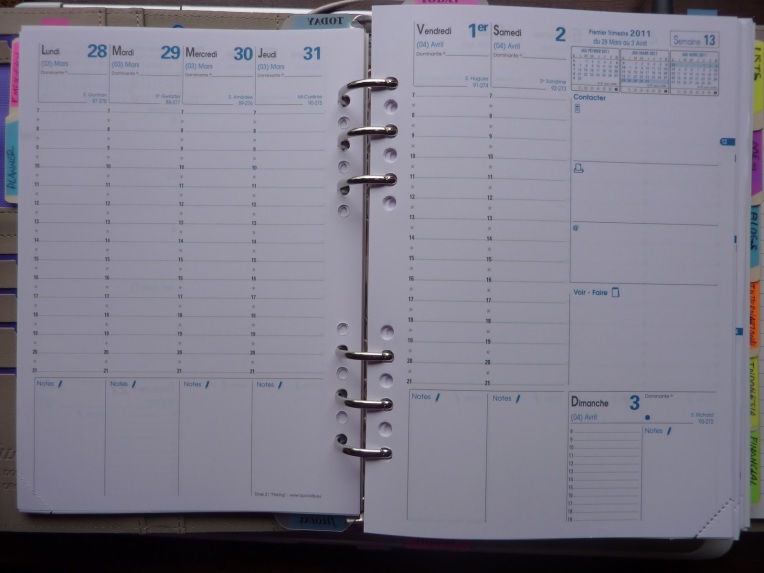
So some people have so much to do during each day that a planner that has a slot for each hour is what they need. If you know you will have time-specific tasks and appointments, this planner (much like Outlook) is right for you.
Vertical Format
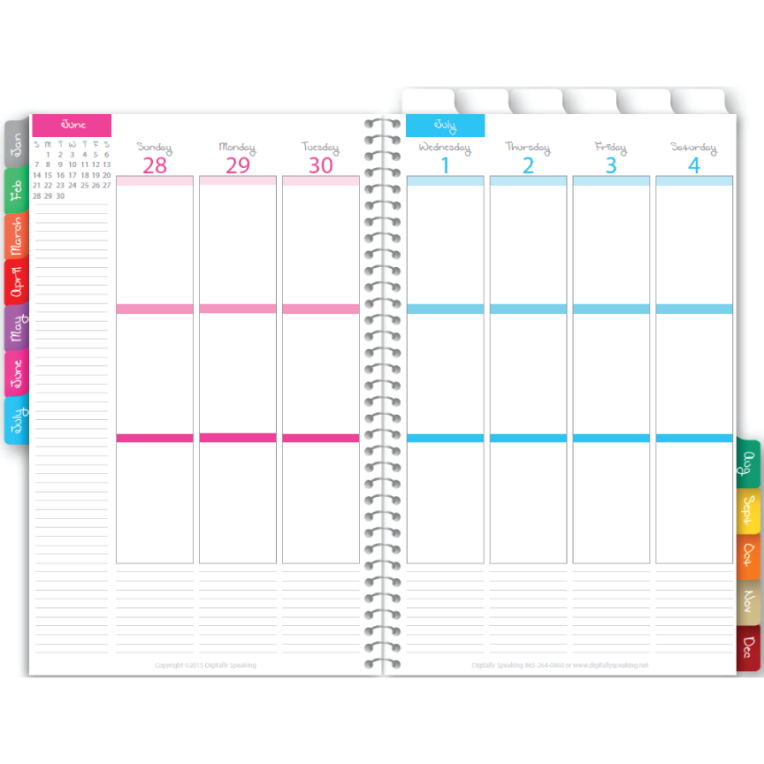
The vertical format planner is for people who like to split up their days into three chunks. Many people use a “Morning/Afternoon/Evening” format, while others use a “School/Work/Home” format, and there are countless other ways to split it up.
Horizontal Format
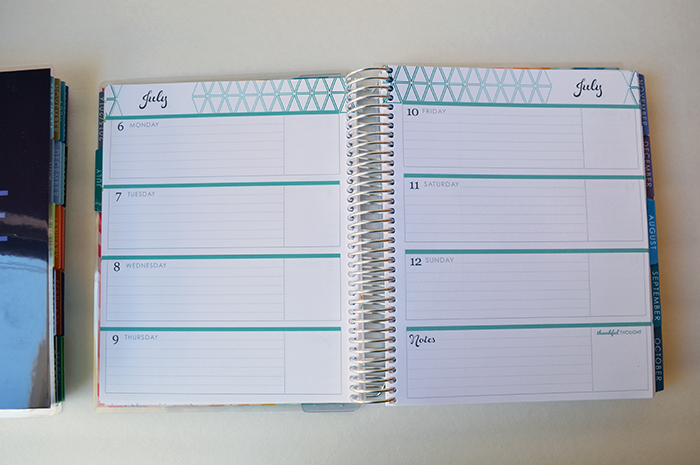
If you like lists or just want a way to organize your life day-by-day, horizontal format planners are for you, and they’re my personal favorite. I’m a bit fickle, and my life can sometimes be unpredictable, so it’s easiest for me to simply have a list of things that need to get done for each day, and I complete the tasks in my own time.
Routines
Usually, your brain tells your body what to do, and for the most part, that’s a really good system. Sometimes, though, your brain and your body disagree about what’s best, and you end up having a hard time getting your shit together because someone wanted to sleep in an extra thirty minutes. The best way to get your brain and your body on the same wavelength is to create a routine that works best for them. Organized people have set sleep schedules, workout routines, fairly rigid mealtimes, etc. If you teach your body that food, sleep, exercise, work, or play will come at a similar time each day or week, your brain will stop focusing on that, and start working more efficiently. For example, if you wake up at 7 am every day and go to bed at 10 pm every day, your body will get into the rhythm of waking up at 7 with no issues and getting ready to get on with your day. On the other hand, if you just kinda sleep whenever, you have a harder time waking up, and it takes you longer to start the day.
Organized people have set sleep schedules, workout routines, fairly rigid mealtimes, etc. If you teach your body that food, sleep, exercise, work, or play will come at a similar time each day or week, your brain will stop focusing on that, and start working more efficiently. For example, if you wake up at 7 am every day and go to bed at 10 pm every day, your body will get into the rhythm of waking up at 7 with no issues and getting ready to get on with your day. On the other hand, if you just kinda sleep whenever, you have a harder time waking up, and it takes you longer to start the day.
So make a list of things you need to get done, how many hours of sleep you need each night (really, try to at least get 8 hours), etc. and then create a realistic routine that will work for you. Set alarms throughout the day to remind yourself to get started on the next phase of your day.
Don’t Give Up
Many people try to get organized because they are having a hard time getting their life together, and many of those same people fail because it’s hard to get your life together. Don’t give up trying to get and stay organized because it doesn’t seem like it’s working immediately. Organization never hurts anyone, it only ever helps.
